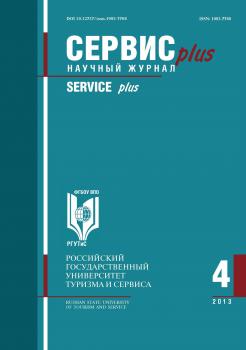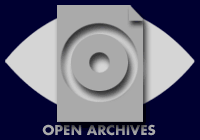Russian Federation
Russian Federation
The article is devoted to the renovation of the communicative culture within information society. The authors consider the problem of devaluation of verbal communication in terms of technical and technological revolution of the end of XX- beginning of XXI century. They justified the feasibility of using interactive educational technologies for the formation of the communicative potential, improving communication skills. Noteworthy the authors suggest a method to the game as a form of creative development of proactive information underlying the formation of skills of verbal interaction. The authors see advantages of the game in opportunities in displays of emotion of the participants, in the creation of the command of the atmosphere, in overcoming barriers to communication, self-actualization. The task of preserving the language considered in the general cultural context as a means of preserving the national identity and mentality with their inherent picture of the world. Talking about changing cultural studies´ paradigms related to the computerization of modern society, it can be argued that it is the devaluation of the problem field of communicative values. As already mentioned, a very important fact is that the general use of information technology and the recognition of it as an absolute communication channel creates a risk of loss of traditional forms of communication with their ethical and etiquette standards, epistolary genre, rhetorical qualities of speech, appeal paper medium of information as a sign of culture . However, paradoxically, it is contrary to and at the same time thanks to the spread of technological form of communication (SMS, Skype and so on) that there has been a recent renovation of the classic communication channels, which is reflected in the creation of cycles of speech disciplines in the educational system at all levels.
renovation, communicative culture, information society, interactive technology, expertise, gamiflcation.
Для современного состояния мирового сообщества характерно всемирное развитие информации как глобального ресурса знаний.
Технико-технологический революционный процесс конца XX — начала XXI вв. обогатил общество такими устройствами как личные компьютеры, планшеты, смартфоны и т. д. Главным достижением явилось повсеместное распространение глобальной сети Интернет или Word Wide Web (WWW). Интернет, в свою очередь, стал крупнейшим и мощнейшим носителем информации, а также жизненно необходимым звеном коммуникации. Различные интернет сайты, поисковые платформы (Google, Yandex, Yahoo и т. д.), а также социальные сети (Facebook, Одноклассники, Lincked in и т. д.) стали неотъемлемыми источниками информации в жизни людей и дали толчок беспрепятственному общению людей из разных стран, разных земных полушарий.
Уникальная стадия развития общества — информационная — характеризуется лавинообразной сменой потоков знаний как результата их систематического обновления, а также возрастания роли информационных технологий.
Разработка концепции информационного общества началась в Японии в 1960-х гг., когда
1. Anikeeva O. A., Krasnova O. N, FodoriaA. III. Istoriia sotsial´noi raboty [History of Social Work]. M., 2009.
2. Efimova L. V. Aksiologicheskie problemy SMI [Axiological media problems] // Servis plus. 2014. T 8. № 2.
3. Zorina N.M. Ispol´zovanie diskursivnykh matrits v formirovanii kommunikativnoi kompetentsii studentov [Using discursive matrices in formation of communicative competence of students] // Srednee professional´noe obrazovanie. 2010. № 1. pp. 30-33.
4. Zorina N.M. К voprosu о prezentatsii teorii diskursa v ramkakh rechevedcheskikh distsiplin [On the question of the presentation of the theory of discourse within speech disciplines] // Vestnik Assotsiatsii vuzov turizma i servisa. 2009. № 3. pp. 93-98.
5. Zorina N.M. К voprosu о sotsiolingvisticheskom podkhode к analizu soderzhaniia kommunikativnoi kompetentsii [On the question of sociolinguistic approach to the analysis of the content of communicative competence] //Vestnik Assotsiatsii vuzov turizma i servisa. 2013. № 2 (25). pp. 33-36.
6. Kireenkova Z.A. Uchebnye navyki как instrument i sredstvo razvitiia professional´noi kompetentsii [Study Skills as a tool and means of development of professional competence] // Vestnik Assotsiatsii vuzov turizma i servisa» 2011. № 3.
7. Novikova N.G., Zorina N.M., Kortunov V.V.. Ispol´zovanie situatsionnykh zadach v obuchenii studentov sozdaniiu delovogo diskursa [Using the case studies in teaching students the creation of business discourse] // Obrazovanie i obshchestvo. 2014. T 6. № 89. pp. 28-32.
8. Pavlenok P.D., Kharitonova T V, Krivosheeva T.M., Anikeeva O.A., Mitiurnikova L.A., Shemeneva O. V, Mozgovaia T.M., Krasnova O.N., Fodoria A.Iu., Pogrebova E.S. Kachestvo zhizni naseleniia sovremennoi Rossii v kontekste sotsial´nogo gosudarstva [The quality of life of the population of modern Russia in the context of the welfare state]. Research report (Federal´noe agentstvo po obrazovaniiu). M., 2010.
9. Paudial´ N.Iu., Rlindash I. V Aktual´nye usloviia uspeshnogo servisa v muzee [Actual conditions of successful service in the museum].// Servisplus. 2013. № 3. pp. 78-86.
10. Paudial´N.Iu., RlindashL. V Spetsifikainteraktivnoiformybiznes-obucheniiavsovremennoi obrazovatel´noi srede [The specifics of an online form of business training in modern educational environment]. // Nauka i obrazovanie: problemy i perspektivy razvitiia. Tambov. 2014. Ch. 1. pp. 94-99.
11. Paudial´ N.Iu., Filindash I.V. Innovatsionnaia metodika formirovaniia kommunikativnogo liderstva: interaktivnye tekhnologii obucheniia [The innovative technique of formation of communicative leadership: interactive learning technologies] // Vestnik RUDN. Seriia «Voprosy obrazovaniia: iazyk i spetsial´nost´». M.: RUDN. 2014. № 2. pp. 70-74.
12. Pestereva N.M., Mazaeva N.P., Bavrina Iu.N, Vinogradova M.V., Gori I.K., Gubanova E.A., Dobriakova O.B., Iliukhina G.I., Kireenkova Z.A., Kovaleva N.I., larionova A.A., Mukhortykh E.S., Mukhortykh N.S., Predbannikova O.I., Rivchun Т.Е., Smit N.I., Suslova I.A., Trubkin P.A., Shishkina I.A., Romanova V.N. i dr. Modelirovanie professional´noi traektorii vypusknikov na osnove integratsii klassicheskogo i biznes-obrazovaniia [Modeling of career path of graduates based on the integration of classical and business education]. Research report (Federal´noe agentstvo po obrazovaniiu). M., 2008.
13. StoliarovD.Iu., Kortunov V.V. Kul´turologiia [Cultural Studies]. M/, 1998.
14. Tartynskikh V.V. Kommunikativnaia kompetentnost´ menedzhera как instrument effektivnogo timbildinga [Communicative competence management as a tool for effective team building]. //Vestnik universiteta. M.:GUU 2014. №13.
15. Krasnova O.N. Problems of social cohesion development. Middle East Journal of Scientific Research. 2014. T 19. № 3.
16. Rlindash I. V, Paudial´ N.Iu. Interaktivnye formy obucheniia v formirovanii kommunikativnykh navykov v obrazovatel´nykh uchrezhdeniiakh [Interactive forms of education in the formation of communicative skills in educational institutions]. // Ritorika v kontekste obrazovaniia i kul´tury Riazan´, 2015. pp. 263-269
17. Cherkashina T.T. , Morozova A, V. Rol´ i mesto dialogicheskoi kompetentnosti v innovatsionnoi modeli podgotovki bakalavrov - ekonomistov [The role and place of dialogue competence in the innovative model of bachelor - economists]. // Ritorika v kontekste obrazovaniia i kul´tury Riazan´, 2015. pp. 214-219.
18. Cherkashina T.T., Tartynskikh V.V, Paudial´N.Iu., Filindash I.V, Morozova A.V Interaktivnye tekhnologii effektivnoi kommunikatsii. Uchebnoe posobie po kul´ture rechi, delovym kommunikatsiiam [Interactive technology for effective communication. Tutorial ofspeech, business communication]. M.: GUU, 2014. 210 p.
19. Zorina N.M., Kortunov V.V. The issues of methodology of a discourse-analysis in teaching of professional speech to the students of non-philological specialties. Middle East Journal of Scientific Research. 2014. T 19. № 4. pp. 554-559.

















